Filter by
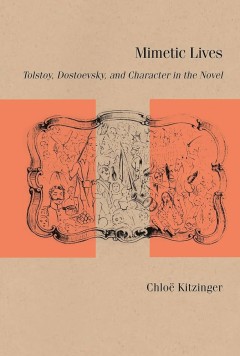
Mimetic Lives : Tolstoy, Dostoevsky, and Character in the Novel
What makes some characters seem so real? Mimetic Lives explores this unprecedented question on the rich ground of Tolstoy’s and Dostoevsky’s fiction. Each author discovered techniques for intensifying the aesthetic illusion Kitzinger calls mimetic life: the reader’s sense of a character’s embodied existence. Both authors tested the limits of that illusion by pushing it toward the novel�…
- Edition
- -
- ISBN/ISSN
- 9780810143975
- Collation
- 256 halaman
- Series Title
- -
- Call Number
- 800 KIT m
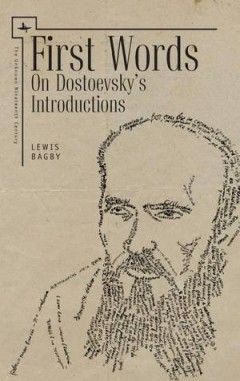
First Words : On Dostoevsky's Introductions
Dostoevsky attached introductions to his most challenging narratives, including Notes from the House of the Dead, Notes from Underground, The Devils, The Brothers Karamazov, and A Gentle Creature. Despite his clever attempts to call his readers' attention to these introductions, they have been neglected as an object of study for over 150 years. That oversight is rectified in First Words, the fi…
- Edition
- -
- ISBN/ISSN
- 9781618114822
- Collation
- -
- Series Title
- -
- Call Number
- 800 BAG f
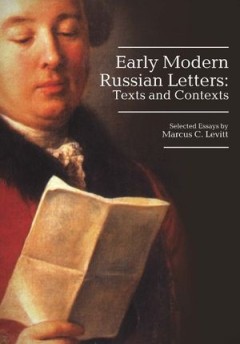
Early Modern Russian Letters : Texts and Contexts
Early Modern Russian Letters: Texts and Contexts brings together twenty essays by Marcus C. Levitt, a leading scholar of eighteenth-century Russian literature. The essays address a spectrum of works and issues that shaped the development of modern Russian literature, from authorship and philosophy to gender and religion in Russian Enlightenment culture. The first part of the collection explores…
- Edition
- -
- ISBN/ISSN
- 9781934843680
- Collation
- -
- Series Title
- -
- Call Number
- 800 LEV e
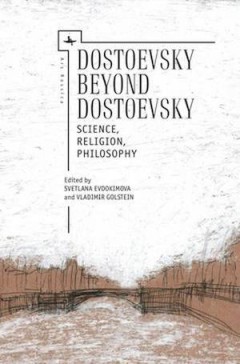
Dostoevsky beyond Dostoevsky : Science, Religion, Philosophy
Dostoevsky beyond Dostoevsky is a collection of essays with a broad interdisciplinary focus. It includes contributions by leading Dostoevsky scholars, social scientists, scholars of religion and philosophy. The volume considers aesthetics, philosophy, theology, and science of the 19th century Russia and the West that might have informed Dostoevsky's thought and art. Issues such as evolutionary …
- Edition
- -
- ISBN/ISSN
- 9781618115263
- Collation
- 424 halaman
- Series Title
- Ars Rossica
- Call Number
- 100 EVD d
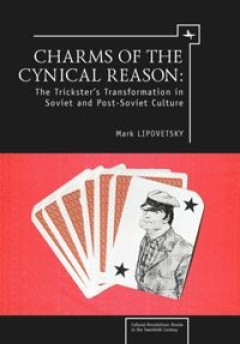
Charms of the Cynical Reason : The Trickster's Transformation in Soviet and P…
The impetus for Charms of the Cynical Reason is the phenomenal and little-explored popularity of various tricksters flourishing in official and unofficial Soviet culture, as well as in the post-Soviet era. Mark Lipovetsky interprets this puzzling phenomenon through analysis of the most remarkable and fascinating literary and cinematic images of soviet and post-Soviet tricksters, including such …
- Edition
- -
- ISBN/ISSN
- 9781934843451
- Collation
- -
- Series Title
- -
- Call Number
- 800 LIP c
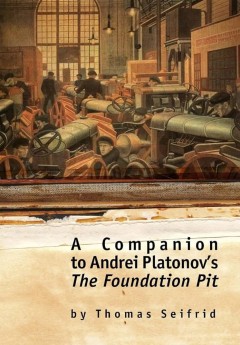
A Companion to Andrei Platonov's "The Foundation Pit" : Studies in Russian an…
Written at the height of Stalin's first "five-year plan" for the industrialization of Soviet Russia and the parallel campaign to collectivize Soviet agriculture, Andrei Platonov's The Foundation Pit registers a dissonant mixture of utopian longings and despair. Furthermore, it provides essential background to Platonov's parody of the mainstream Soviet "production" novel, which is widely recogni…
- Edition
- -
- ISBN/ISSN
- 9781618116970
- Collation
- -
- Series Title
- -
- Call Number
- 800 SEI c
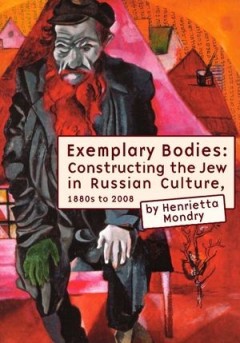
Exemplary Bodies Constructing the Jew in Russian Culture, 1880s to 2008
Exemplary Bodies: Constructing the Jew in Russian Culture, 1880s to 2008 explores the construction of the Jew’s physical and ontological body in Russian culture as represented in literature, film, and non-literary texts from the 1880s to the present. With the rise of the dominance of biological and racialist discourse in the 1880s, the depiction of Jewish characters in Russian literary and cu…
- Edition
- -
- ISBN/ISSN
- 9781934843390
- Collation
- -
- Series Title
- -
- Call Number
- -
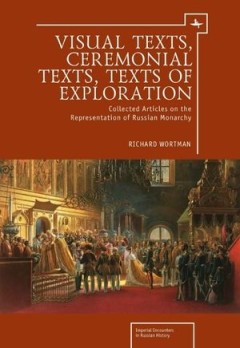
Visual Texts, Ceremonial Texts, Texts of Exploration: Collected Articles on t…
Visual Texts, Ceremonial Texts, Texts of Exploration continues the work begun in Russian Monarchy: Representation and Rule, which analyzed the interplay between the symbolic representations of Russian monarchs and the legal and institutional instruments of their rule. The articles in this volume examine the texts that, through various media, revealed the myths and scenarios conveying the goals …
- Edition
- -
- ISBN/ISSN
- 9781618113474
- Collation
- -
- Series Title
- -
- Call Number
- -
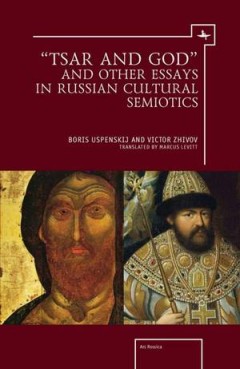
“Tsar and God”: and Other Essays in Russian Cultural Semiotics
Featuring a number of distinguished essays by internationally known Russian cultural historians Boris Uspenskij and Victor Zhivov, this collection encompasses various ground-breaking works appearing in English for the first time. Focusing on several of the most interesting and problematic aspects of Russia's cultural development, these essays examine the survival and reconceptualization of Russ…
- Edition
- -
- ISBN/ISSN
- 9781936235490
- Collation
- -
- Series Title
- -
- Call Number
- -
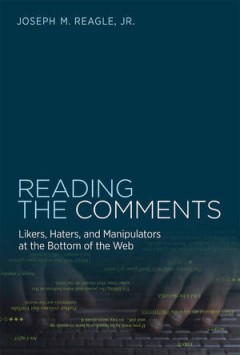
Selected Prose of N. M. Karamzin
In Selected Prose of N. M. Karamzin, Henry Nebel’s translation and extensive introductory material presents a collection of primary sources by a Russian author whose tales explore the creative exploitation of sentimentalism’s potentialities.
- Edition
- -
- ISBN/ISSN
- 9780810138612
- Collation
- -
- Series Title
- -
- Call Number
- -
 Computer Science, Information & General Works
Computer Science, Information & General Works  Philosophy & Psychology
Philosophy & Psychology  Religion
Religion  Social Sciences
Social Sciences  Language
Language  Pure Science
Pure Science  Applied Sciences
Applied Sciences  Art & Recreation
Art & Recreation  Literature
Literature  History & Geography
History & Geography